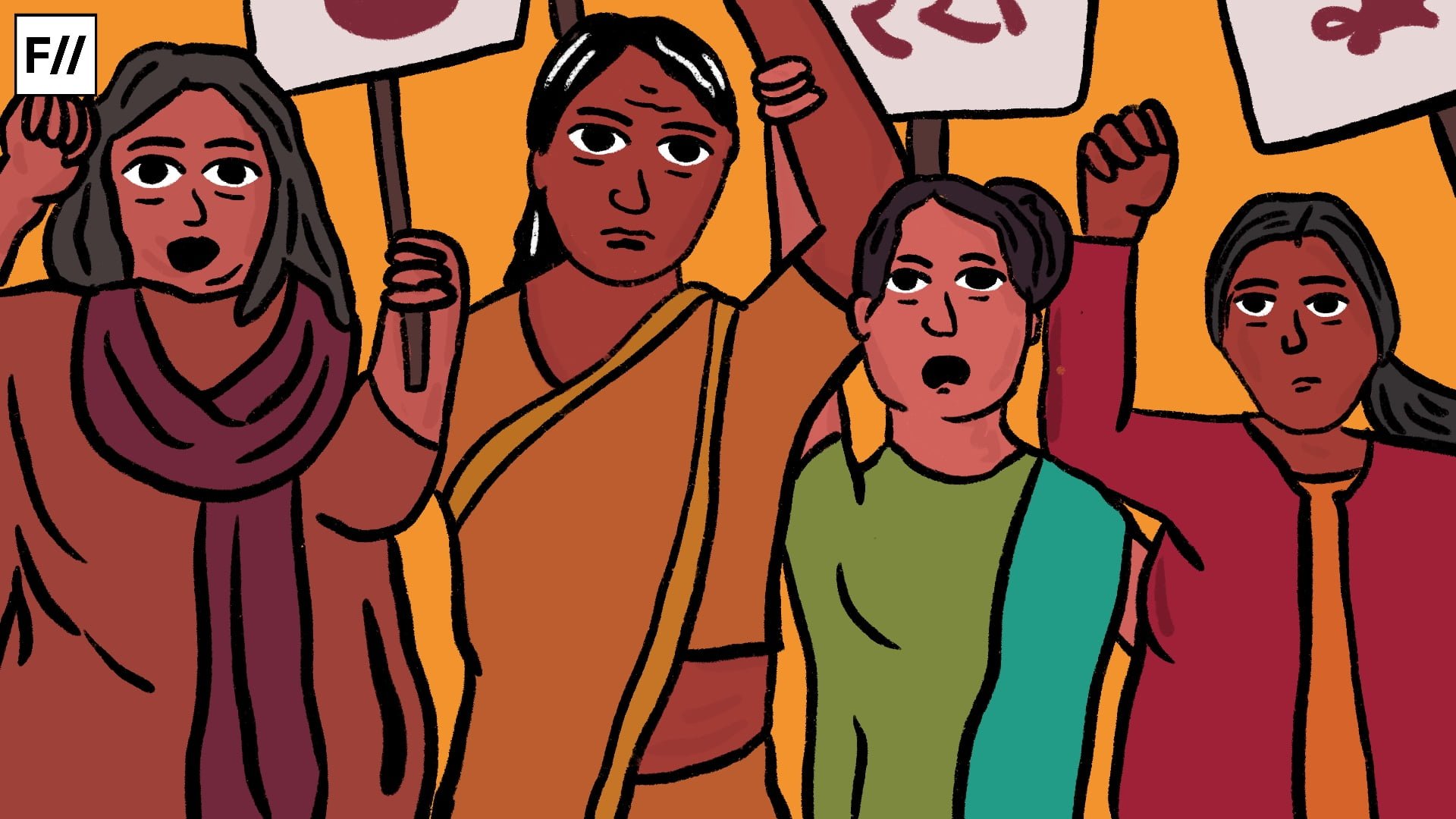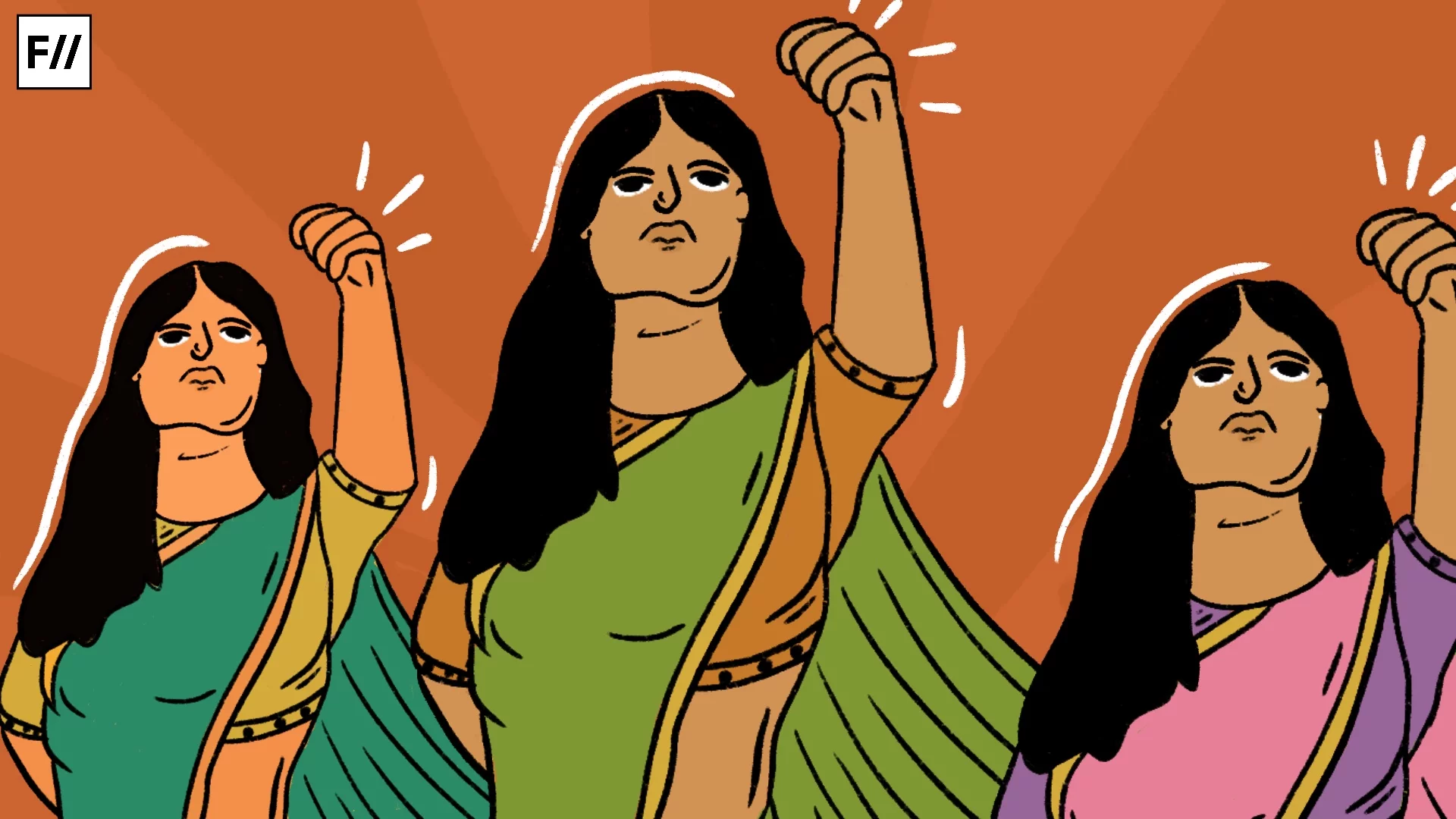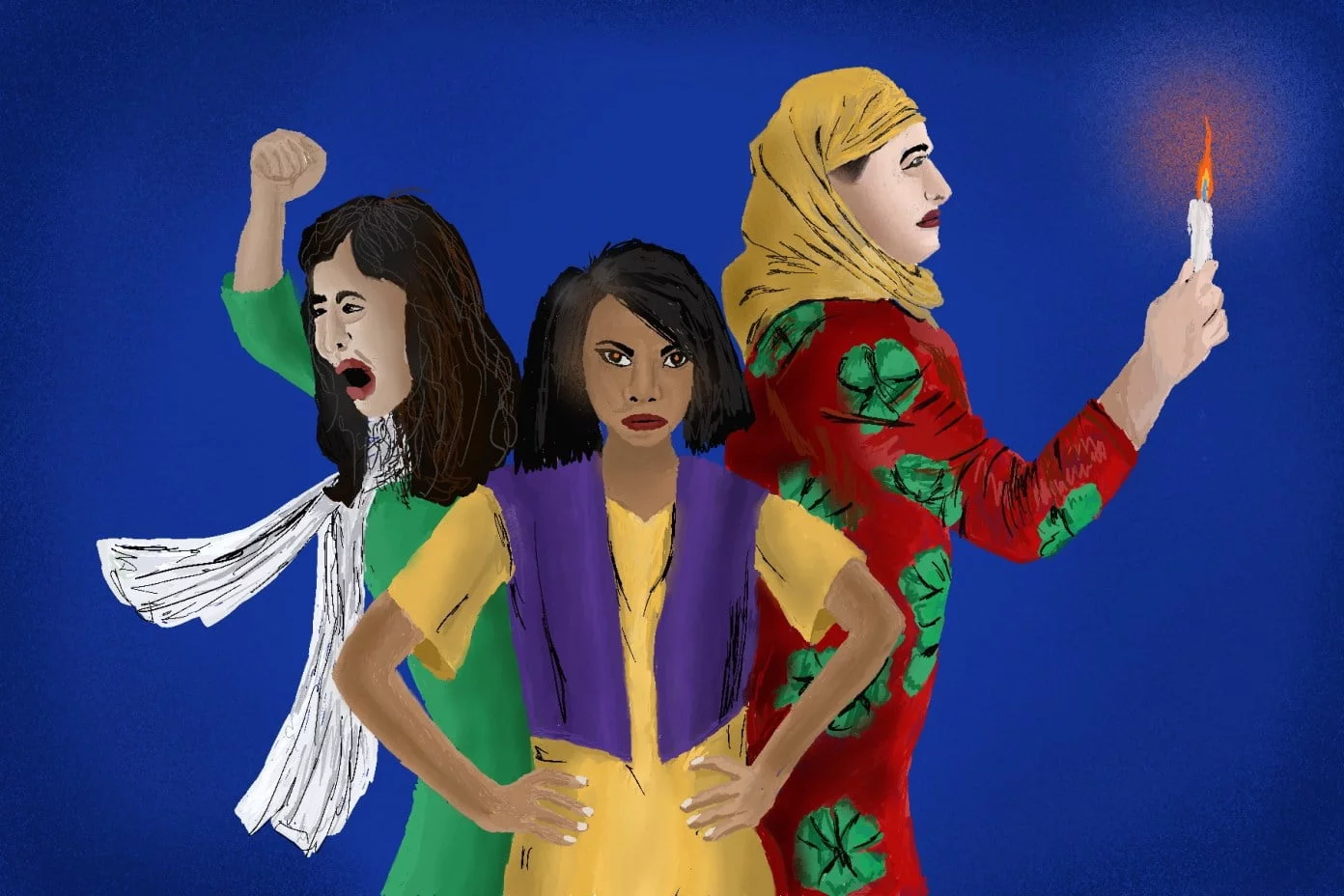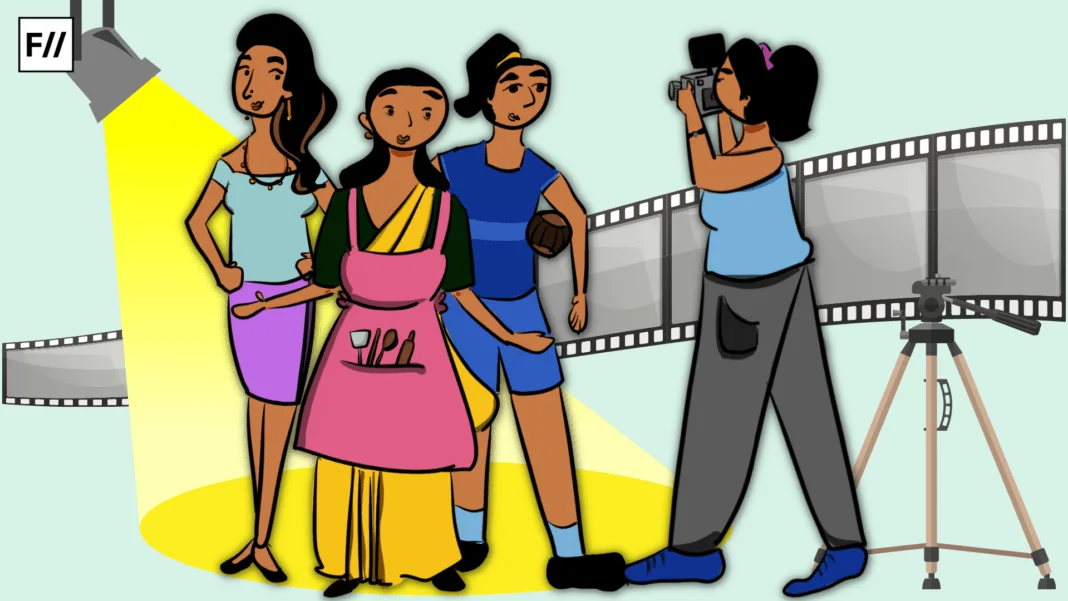Casting Couch – it’s an innocent-sounding euphemism that exhorts us to consider the phenomenon it describes with casual indifference and dismissiveness. It allows for what it actually represents – horrific forms of systemic sexual violence and abuses of power to be couched in language that is so innocuous that it seemingly merits no consideration beyond mere acknowledgement as a Tinseltown feature that can either be an amoral transgression to scoff at or a running joke to chuckle at – whatever the observer prefers. But what it is rarely seen as, is what it actually is: sexual violence.
After the Hema Committee Report brought to light the rampant sexual harassment, sexism, and unchecked abuses of power within the Malayalam film industry, the term casting couch has re-entered popular parlance. But though the term has long been used to refer to sexual harassment within the entertainment industry, it is now being used more often with regard to other workplaces to refer to quid pro quo sexual harassment, wherein an employee is forced to concede to sexual demands made by someone in a position of authority over them to gain opportunities, promotions, or other forms of career advancement.
The most recent example of this sort of usage beyond the entertainment industry is the use of ‘casting couch’ to refer to a Kerala Congress leader’s claim of sexual harassment within the party.
The most recent example of this sort of usage beyond the entertainment industry is the use of ‘casting couch’ to refer to a Kerala Congress leader’s claim of sexual harassment within the party. While the leader, Simi Rosebell John, accused the party of having a casting couch culture, akin to that of the entertainment industry, most subsequent reporting on the matter also referred to the allegations of sexual harassment as ‘casting couch allegations‘.

But whether used to refer to sexual exploitation within cinema or in other workplaces, the term is damaging and misrepresents what it describes in ways that benefit abusers, displace blame onto victims, and allow society and institutions to overlook the pervasive issue of sexual violence by making abuse more palatable and soft-peddling sexual crimes.
Casting couch finds its first mentions in early 20th century Broadway and 1920s Hollywood. The first supposed use of the term in Hollywood dates back to a 1924 stag film called The Casting Couch, although the veracity of this is suspect and it could likely be a title bestowed later. The first verifiable mention of the term in print, however, is in a 1934 Variety article. But the exact origins of the term are murky, although since its earliest use, casting couch has rarely been treated as sexual harassment. Actor Helen Mirren in a 1991 documentary said, ‘The casting couch was always thought of as a joke. But we never found it very funny.’
A 1956 story about casting couch in a British magazine, Picturegoer, mentioned in its opening paragraph, ‘And the terrible thing is that these facts seem to be taken for granted by people in show business. It is time they were brought into the open.’ But seventy years on, things aren’t all that different. Casting couch has been reduced to a cultural punchline, a cliché, an inevitability of show business that is viewed as a mainstay of the entertainment industry. And people who seek to make a career in the performing arts are expected to either make their peace with it or abandon the industry altogether.
Transactionality, stigmatisation, and power differentials
The entertainment industry is often considered an unacceptable career choice for women. While patriarchal perspectives regarding women being engaged in the performing arts lacking respectability motivate this, it also stems from the general understanding of sexual exploitation as an inevitable hazard of the cinema trade. And the myth of the casting couch is to blame for this. The term casting couch allows for the misrepresentation of sexual abuse as ‘trading sexual favours‘.
It makes sexual harassment seem transactional, suggesting a choice in the matter and presenting it as a lesser form of workplace sexual harassment or a transactional relationship that’s not abuse altogether.
It makes sexual harassment seem transactional, suggesting a choice in the matter and presenting it as a lesser form of workplace sexual harassment or a transactional relationship that’s not abuse altogether. Popular understanding of casting couch evokes the image of a barter: a promising ingénue trading sexual favours in return for a lucrative opportunity. It creates a fictionalised version of reality that seeks to hide the truth: powerful men exploiting vulnerable women.
This is a deliberate, but common, misreading that treats casting couch, not as a form of workplace sexual harassment and exploitation, but as a fair trade, albeit a shady or morally reprehensible one. But even the amorality is often attached to victims and not the perpetrators.

Bollywood choreographer Saroj Khan, speaking of the prevalence of casting couch in Indian entertainment, went so far as to defend such sexual exploitation by claiming that women who are subjected to such abuse at least earn a livelihood because of the industry, further adding that women choose to subject themselves to casting couch and those who are talented won’t have to ‘sell themselves‘. While an atrocious statement, it reflects popular beliefs about casting couch, even among those in the industry.
Patriarchal notions also feature heavily in strengthening this narrative. The idea that casting couch is a transaction is a patriarchal myth deriving from a misogynistic distrust of ambitious women. This misogyny-fuelled ire towards women who reject gendered expectations relating to careers and ambition helps to position casting couch as ambitious women ‘sleeping their way to the top‘ and not as men with immense socio-economic power and cultural currency exploiting vulnerable women who they exercise authority over by threatening their careers and ability to make money.
Within patriarchal frameworks, ambition is the business of men and women who reject this diktat are recipients of cultural distrust and ire and are hard-pressed to find any solidarity or support.
Casting couch distances the reality of sexual harassment from exploitation and violence with its benign framing that easily allows for its meaning to be exploited to protect perpetrators and the systems that enable it.
Casting couch distances the reality of sexual harassment from exploitation and violence with its benign framing that easily allows for its meaning to be exploited to protect perpetrators and the systems that enable it. However, women from the entertainment industry being dismissed when speaking of sexual violence is a larger cultural and institutional problem that cannot be attributed to casting couch’s weakness as a euphemism alone.
Women from all facets of life facing all forms of violence are routinely disregarded and victim-blamed, and the violence committed against them is minimised and reduced to an afterthought. But calling workplace sexual harassment, whether within show business or increasingly in other industries casting couch, makes the situation worse by allowing for victims to be viewed as “participants”.
In 2017, the same year the Hema Committee was constituted, Veteran Malayalam actor and former AMMA President, Innocent, said that casting couch no longer existed in the Malayalam film industry. He added that ‘bad women‘ may sleep around, but sexual exploitation doesn’t exist in Malayalam cinema. By allowing for sexual harassment to seem like a trade, the idea of the casting couch effectively deems victims to be participants; ‘bad women‘ who are choosing to engage in a sexual barter, instead of women looking to make a living being exploited and abused.

The term also dilutes popular understanding of consent and power dynamics by furthering the idea that unless a victim explicitly says no or is overpowered, it is not sexual assault. Whether saying no comes with dire consequences is never taken into account, and neither is the skewed power dynamics in these situations involving an authority figure.
Actor Rajeev Khandelwal narrating his own brush with such sexual harassment said that anyone who ‘gives into casting couch is equally responsible‘. He went on to add, ‘Casting couch is not rape where you are forced upon. What I understand from casting couch is that you are subjected to a situation where you get some benefit out of it.’
The complete lack of understanding of power dynamics and coerced consent is appalling but is not a feature limited to discussions of casting couch. This lack of understanding permeates all popular discourse of sexual violence where a narrow, incomplete idea of consent prevails and power dynamics are rarely, if ever, taken into account. For this reason, the issues surrounding the use of the term casting couch have wider implications outside of the cinema business.
The glitz and glamour of the entertainment industry might make it seem far removed from the realities of our world but that’s untrue. Attitudes towards sexual abuse in the entertainment industry mirror popular cultural attitudes towards violence against women and similar normalisation and trivialisation of sexual violence exists in larger society. The entertainment industry is a miasma of misogyny stemming from patriarchal attitudes, much like the rest of the world.
Semantic gymnastics and the deception of ‘casting couch’
How we speak of sexual violence is a critical issue that’s more than just hand-wringing over semantics. Language and popular attitudes have a circular relationship, wherein language used to discuss sexual violence betrays popular attitudes about violence against women, and public opinion, in turn, is influenced and solidified by popular language. This is why it is essential that we use nuanced, carefully considered language when discussing sexual violence, lest we normalise problematic attitudes by using language that legitimises these ideas.
It is a term constructed to egregiously evoke a sense of transactionality and mutual benefit; where the victims are participants and the perpetrators are rendered invisible because their actions somehow don’t matter.
Room to misunderstand what casting couch means seems baked into the term itself. This is semantic gymnastics in an effort to mute the realities of sexual harassment. It is a term constructed to egregiously evoke a sense of transactionality and mutual benefit; where the victims are participants and the perpetrators are rendered invisible because their actions somehow don’t matter.

The idea of casting couch also doesn’t lend any vocabulary to refer to perpetrators. If it’s a barter, then these men aren’t rapists and abusers but benefactors, thus soft-peddling their crimes and ultimately shielding them from consequences. The myth of the casting couch benefits perpetrators by obscuring the realities of the sexual violence they commit.
Powerful men who exploit women shouldn’t have the cover of language behind which to hide their violence and abuses of power. Such language also allows us, as a society, to turn away from such violence and not have to confront it. Earlier this year when JD(S) leader Prajwal Revanna’s horrific sexual abuses were uncovered, a majority of the reporting called the recovered recordings of this violence ‘sex tapes‘ and the years-long sexual violence and abuse of power he committed were minimised and referred to as a ‘sex scandal‘.
Minimising and misrepresenting the crimes of abusive men is a product of societies and structures created for and by men, seeking to protect men’s reputations at the cost of women’s lives and well-being. And these very structures are what allow these abuses to take place for years on end with impunity and iron-fisted silence.
The idea of a casting couch is a deception, a red herring. The next time we use the term ‘casting couch‘ to refer to workplace sexual abuse, we must ask ourselves who or what we are seeking to protect by making sexual violence seem more palatable and easier to digest.
About the author(s)




